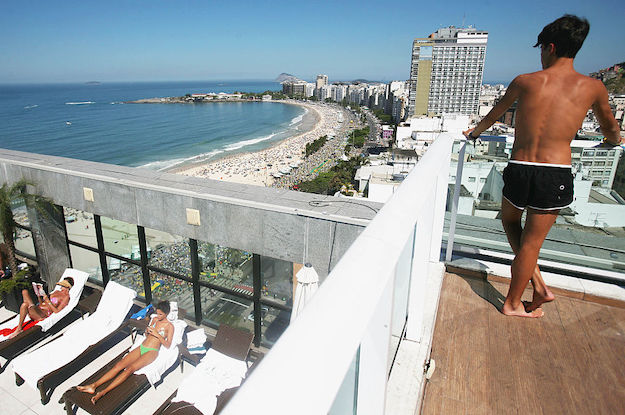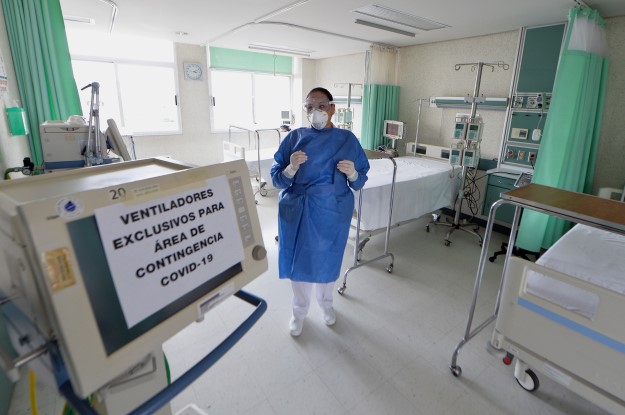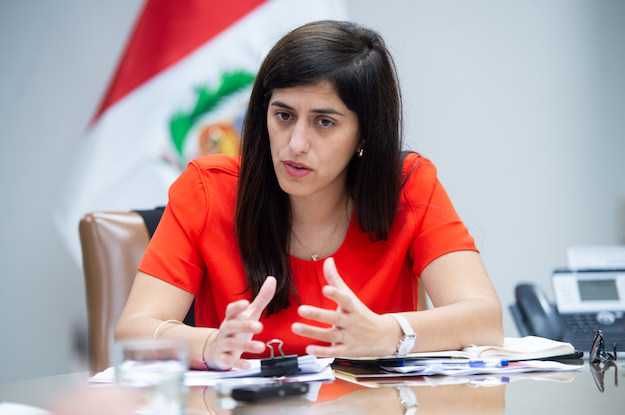In Latin America’s nascent debate over how to pay for its pandemic response, one idea is gaining traction: Tax the rich.
Since March, debates over new tax measures targeting the ultra-wealthy and high earners have begun in at least nine countries across the region, as lawmakers and governments try to figure out how to fill the massive fiscal holes created by the coronavirus.
“We’ve taken on a massive debt to face this crisis, and we’re going to have to pay for that somehow,” Samuel Pérez Álvarez, a Guatemalan congressman, told AQ. “It’s not going to be the middle or lower classes.”
Pérez and his colleagues from the Semilla party presented a bill in Congress this month to increase the income tax rate on the top 0.1% of earners in response to the crisis. As the pandemic squeezes governments of cash, plans for redistributing wealth have sprung up elsewhere, including in Argentina, Peru and Brazil – and not for the first time.
Higher taxes on the rich are often cited as a possible way to increase revenue for governments in the region; tax takes in Latin America and the Caribbean averaged the equivalent of 23.1% of GDP in 2018, compared to the OECD average of 34.3%. Some countries, such as Mexico and Peru, pull in considerably less.
Now, given the gravity of the current crisis, Latin America is debating how a higher contribution from its wealthiest could help the region weather the pandemic’s financial toll.
“Evidently something is changing in people’s minds,” said Julia Strada, a researcher and director at the Argentine Political Economy Center who has been tracking new debates happening specifically around wealth taxes – or taxes on amassed fortunes.
“Suddenly the problem of inequality is more visible,” Strada told AQ.
There are currently taxes on net fortunes, in some form, in just three Latin American countries. A comparison of the region’s income tax rates with those in Europe, meanwhile, underscores the low tax burden placed on Latin America’s rich. In 2018, the average tax rate on the highest income bracket across 18 countries in the region was just 26.7%, with no country taxing its highest earners above 35%, according to data from the Inter-American Center of Tax Administrations. In Europe, top earners pay marginal income tax rates, before social security contributions, of 60.2% in Sweden, 55.2% in France, 47.5% in Germany and 43.5% in Spain.
Fernando Velayos, a tax policy consultant specializing in Latin America, said renewed debate over higher taxes on the wealthy can be explained by the public health crisis’ convergence with existing macroeconomic realities.
“You have Latin America’s chronic inequality alongside the pandemic and a reduction of revenues from commodities – it’s like a perfect storm,” Velayos told AQ.
Still, there are obstacles to many of the new tax proposals becoming law. Most have been put forward by opposition politicians, often with ties to former administrations. That’s the case in Ecuador, where lawmakers from former President Rafael Correa’s party have proposed a package of reforms that includes a wealth tax of 0.9% on individuals’ assets over $1 million, as well as new taxes on bank revenues and on the country’s largest businesses. Without the government’s support, the proposal has floundered in Congress.
In Paraguay, former President Fernando Lugo’s Guasú Front has proposed a 1% tax on fortunes over $10 million. In Brazil, several proposals seek to turn an existing wealth tax provision into law; one comes from the Workers’ Party of former President Luiz Inácio Lula da Silva. In Chile, where the president himself is worth $2.6 billion, the Communist Party’s Camila Vallejo is pushing a conversation on taxing the ultra-rich. In Bolivia, Luis Arce, the presidential candidate for former President Evo Morales’ party, has proposed a measure to tax fortunes to fund health spending. There are also multiple proposals for wealth taxes from opposition parties in Peru.
The most likely scenario for a new wealth tax is Argentina, said Strada. There, congressional allies of Vice President Cristina Fernández de Kirchner have proposed a one-time tax of 2% on fortunes over 200 million pesos (around $3 million), with the rate increasing to 3.5% on individuals worth over 3 billion pesos. The tax, which would raise upwards of $3 billion from 12,000 people, has the support of President Alberto Fernández and Finance Minister Martín Guzmán, as well as broad support among the public, according to Argentine news site The Essential. That said, the proposal is not expected to become law without pushback.
“The government is evaluating how much revenue it can bring in from the tax in relation to how much it will cost politically,” Strada told AQ. “The one-time revenue doesn’t seem like it would be huge, but the political cost would be.”
The idea of a wealth tax is not an entirely new one in Latin America. Argentina already has an annual personal assets tax, which, after a reform last December, starts at 0.5% on assets over 2 million pesos and increases progressively up to a 1.25%. Uruguay also collects an annual tax on net worth over $112,000.
Colombia, meanwhile, has a similar tax of 1% on net worth over $1.3 million. Now, the pandemic has pushed the national government to mandate a three-month “solidarity tax” on public sector worker wages over 10 million pesos a month (around $2,500).
In Peru, the government is designing its own “solidarity tax,” with President Martín Vizcarra saying it is “important for those who have the most to show solidarity with those who have the least” – a nod to Pope Francis’ call for solidarity amid the crisis.
The plan his government is considering would reportedly affect payroll workers making at least 10,000 soles (around $2,900 a month). The government aims to collect the equivalent of $88.7 million a month, or roughly 0.5% of GDP, from temporary taxes throughout the course of the year, according to Fitch Ratings, which called the tax “a positive signal for Peru’s fiscal policy credibility.” Still, Fitch acknowledges that the tax alone “falls far short of the extraordinary fiscal expansion” that Peru has enacted to the tune of 7.2% of GDP in response to the pandemic.
In Guatemala, Pérez’s reform would create a new tax bracket for earnings over 60,000 quetzales a month (about $7,800), with the rate moving from 7% to 10%. The estimated $286 million in additional revenue would fund a new unemployment insurance program that Pérez has proposed in Congress.
Many of the proposals up for debate are certain to face headwinds, including questions over constitutionality, said Velayos. Business interests have also voiced their opposition in some cases, including in Guatemala, where politicians like Pérez have long called for a more progressive tax regime.
“The economic crisis isn’t going to end when the health crisis ends,” Pérez told AQ. “We have to be prepared to mitigate its impact, and ensure we have the tools and resources necessary to do so.”









